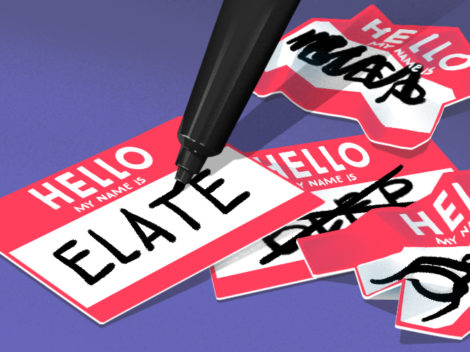Today, Senator Elizabeth Warren detailed a number of proposed changes to the technology industry that she would work to enact if elected president. She called out the big and not-so-friendly giants by name, stating her issues with Amazon, Facebook, and Google. Senator Warren is part of a large cohort of 2020 hopefuls from the Democratic party, each striving to best each other and then the current administration.
Subscribe to the Crunchbase Daily
The document, read it here, is interesting and notable in a number of ways. I do not agree with everything written in the piece, so let’s talk about what’s good (from my perspective as a person with a keyboard), and what’s not.
The Good
The Senator from Massachusetts is correct on several counts. First, that there is a reasonable case that some tech companies have abused positions of power, accreting to themselves erstwhile competition through mergers and acquisitions that violate the spirit of anti-trust. Facebook buying Instagram and WhatsApp, and nearly buying Snap, are my favorite examples of this.
The American government today is powered by corporate dollars and composed of two parties, one fully committed to business-interests over those of the working people in spirit and fact, and the other merely in fact. As such, it has not been in an anti-trust mood my entire adult life.

That could change, given that consumer sentiment is shifting. Taking a look at some recent data, Facebook is taking a drubbing in this Axios poll of consumer sentiment, and deservedly so. But Amazon, a key bad player in Senator Warren’s estimation, is not. So how much upswell there could be to slice up the Big Five isn’t as clear as you might imagine.
But some regulatory pressure on the biggest tech companies would be good. We’ve relied on the media to police shadow-states like Facebook and it hasn’t fucking worked. The other big shops are the same. Having a cop on the beat is something needed as Microsoft shouldn’t be allowed to buy Slack. That sort of thing.
The Senator’s second main point deals with marketplace competition. Her model of banning marketplace players with more than $25 billion in revenue from participating in their own marketplace is moot (a given example is Google promoting “its own restaurant ratings over those of Yelp”), and obviously aimed at Bezos’s forehead. But having more, and stricter, and enforced rules regarding platform players and how they manage their own platform would be good.
I think that it would be good to have more rules and stronger application of them as I don’t trust Amazon’s ability to self-regulate any more than I trust Facebook’s. And I quit every single Facebook property that I was part of.
The Bad
I’ll leave the document’s dodgy search engine history aside, and I won’t make a fuss over the fact that the Amazon e-commerce percentage cited is a domestic number, and it needs to be added to this chart to make any sense.
The revenue thresholds the Senator would place on marketplaces to determine if they could play on their own turf or not would likely prove ineffectual. The various companies in the platform space (Amazon’s marketplace and Google’s search and ad products are listed) are not going to give up their ability to talk about themselves on their own whiteboards, and they probably shouldn’t have to.
There are also things that are simply confusing. For example, according to Senator Warren, “Google Search would be [a] platform [utility] under this law.” In practice, Google would therefore “be prohibited from owning both the platform utility and any participants on that platform.” Does that mean that Google can’t turn up search results to other Google properties if I search for them? If I searched for Gmail on Google in this model, would I only get the Wikipedia page? Or is Google banned from owning Gmail if it also does search? If so, could Alphabet then absorb Gmail, or does Google have to sell it to Verizon, so it can be ruined?1
This is all the odder a situation as Senator Warren praises Google earlier in the piece, saying “aren’t we all glad that now we have the option of using Google instead of being stuck with Bing?”2
So that won’t work, at least as written down. The big, clear, and simple rules that are detailed for marketplaces, while commendable in their aim, do not seem workable. There are better ways to force improved behavior from platform players, and I think we need them. But this, probably, isn’t it. (Not that the idea would ever get passed, of course, as the big tech companies would simply carpet bomb D.C. with money and get their way.)
Just picking one more thing that stood out as odd, if not wrong, is the call-out of Alphabet’s Nest acquisition. I suppose if you think about Google Home as a platform, and Nest as an IoT device, perhaps Google’s parent company shouldn’t have been able to snag the firm, but it seems like an odd thing to focus on.
The Hell?
The worst part of the Warren missive is that it gives a huge pass to the shenanigans taking place in the telecom world. Not a peep about the Sprint and T-Mobile deal that will limit competition and reduce wireless broadband to an oligopoly instead of a slightly competitive market, for example.
And no words against the more-nefarious-than-Nest firms like Comcast and Verizon? If you are going to write up a doc about tech being bad, and you leave out a whole rafter of villains, I become skeptical. Here’s some more on the matter, if you want it.
Overall, Senator Warren is correct to argue that tech needs more and better oversight, and we need to stop letting big tech companies buy their way to safety. But some of her plans seem impracticable in the extreme or aimed at the wrong folks.
That said, this document should act as a blaring alarm to the tech industry: The politicians have noticed that Silicon Valley is more than a fundraising swing.

Stay up to date with recent funding rounds, acquisitions, and more with the Crunchbase Daily.





![Illustration of a tidal wave - Asia - Quarterly Reports [Dom Guzman]](https://news.crunchbase.com/wp-content/uploads/Quarterly-Asia-2-300x168.jpg)
![Illustration of a tidal wave - Europe - Quarterly Reports [Dom Guzman]](https://news.crunchbase.com/wp-content/uploads/Quarterly-Europe-2-300x168.jpg)


![Illustration of a tidal wave - Latin America - Quarterly Reports [Dom Guzman]](https://news.crunchbase.com/wp-content/uploads/Quarterly-Lat-Am-300x168.jpg)
67.1K Followers